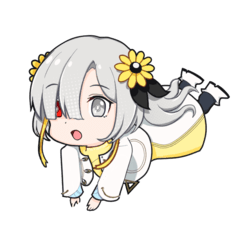How to paint Bokeh Effect
Hello everybody. I will be sharing some tips on how I paint the Bokeh effect.
Bokeh is the beautiful out-of-focus background seen in photographs that is achieved by using a fast lens.
So basically, it is when the background is blurred out because it is out-of-focus and the lights are blown up into pretty circles of light.
So the two main qualities of the Bokeh effect is that the background is blurred and the lights are blown up into circles of light.
However, here are a few more things to keep in mind when coming up with your composition or painting your scene.
- Try to place lights in dark areas.
- Some lights are brighter than some.
- When the circles of light overlap, the overlapped portion is brighter.
- Things beside or infront really bright lights looks as if the light is eating away at their sides. Example being a bright light beside a pole.
- The lights will still be reflected on nearby things or reflective surfaces like roads and close buildings.
- If the light is positioned above a really reflective surface the reflected light usually appears as if it is melting downwards from it's source. Examples are lights above a sea or wet road.
- The reflected lights are also blurred out.
- The closer the lights are to you, the smaller, brighter and more opaque they appear. The reverse is also true.
For everything else that's not a light, the closer they are the sharper and more vivid they are.
Also, the further away they are the more blurred out and darker they appear.
I will be demonstrating how I paint the Bokeh effect while keeping the tips mentioned above in mind.
So first, I draw my sketch.
Then I lower the opacity and create a new layer below it that I will be painting on.
On the layer below, I paint in the base colors.
Then I paint in the colors using a water color brush. I paint in some subtle reflections too.
I also made things leading up to the vanishing point a little blur using my water color brush.
I then duplicated this layer and apply a radial blur to the duplicate and place it above the original.
For the radial blur I position the center point ' the x' to my vanishing point as shown below.
Above you can see that there is a copy of the layer above it.
For the copy that is above the other, will will be gently erasing the edges so the centre is more blurred than the edges.
Then I begin to paint in the really far lights. These lights will be bigger and more blurred out thus less opaque too.
For these lights I used a brush called 'Light Line' that I downloaded from assets. It is 'Light Line 3' and it at the red arrow below.
The url of the Light Line brush is below. Again, it is the third brush
As indicated by the blue arrow I set the brush size to about 4.4 and brush density to about 39. These will result in those nice distant Bokeh lights of the traffic of the intersection at the middle of the picture.
Now for the fun part.
It is time to paint in the brighter and nearer Bokeh lights.
Do these on a new layer.
Choose a saturated color. With a g-pen paint the areas where lights should be making the closer ones more opaque and the farther ones less opaque and bigger.
On another layer with the blending mode set to add, paint over the really close lights with a lighter version of the color the light is in with a smaller brush size.
Now it is time to paint in the reflections that the lights are casting on the road because the road is really reflective. The lights will run vertical below the lights.
I use a water color brush for this step.
I use the smooth watercolor brush with a low paint density of about 11 and a rather high brush density like 95.
I start with a more saturated version of the color of the light then go over it with a lighter version of the color.
I then save it as a png image.
I then reopen the image and go to 'edit' then to 'tonal correction' the to 'brightness/contrast.
As shown above, I move the contrast slider to about 47.
And ta-dah, we are done. You can spend more time on yours and put in more details and lights so it looks better
I hope you find this useful. Bye.























留言